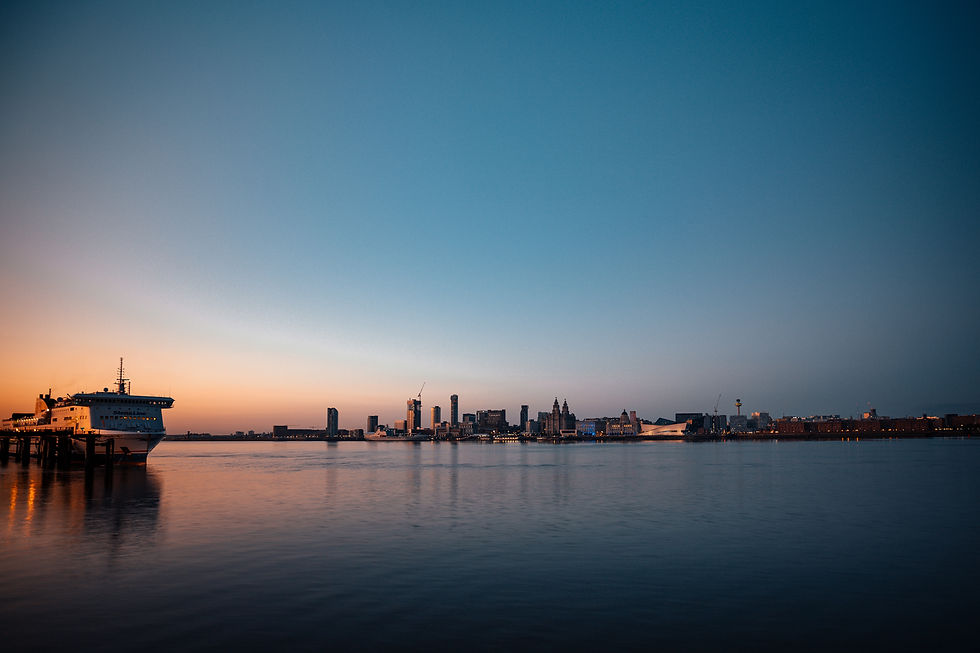Liverpool prioritising nature-based solutions to transform urban areas
- Li Tan
- Jan 30
- 3 min read

Liverpool, a city renowned for its musical heritage, is setting a precedent for addressing climate action through innovative urban planning. In recent years, this bustling city has faced significant challenges, including increased flooding, air pollution, and a growing demand for sustainable transportation. With transport accounting for 33 per cent of the city’s carbon emissions, Liverpool is taking decisive steps to reduce its environmental footprint, aligning with global goals for sustainability, environmental protection, and economic equality.
Tackling urban challenges through innovation
In 2019, the Liverpool City Council (LCC) declared a Climate Emergency, marking a pivotal moment for the city’s environmental policies. Leveraging expertise from EU-funded initiatives, the LCC launched the 'Greening Liverpool Project'. This initiative emphasises nature-based solutions, aiming to enhance public spaces and promote safer, greener mobility options.
The Council’s 10-year Transport Plan, adopted in 2024, sets an ambitious goal: a tenfold increase in cycle journeys by 2027. This commitment is part of the Sustainable Cities Mobility Challenge, a programme supported by EIT Climate-KIC and funded through the Charities Aid Foundation (CAF) America via a grant from FedEx. The project aligns with broader climate action goals, demonstrating Liverpool’s dedication to becoming a climate-resilient urban hub.
Progress is evident in areas like Toxteth, where traffic signals on Grafton Street have been upgraded to prioritise cyclists and pedestrians. A protected bike lane and innovative paving that enhances surface water drainage are also being introduced. Nearby, on Upper Pitt Street, restrictions are being removed to create a cycle-only lane, fostering safer and more accessible routes.
A key feature of the initiative is the integration of greenery into urban spaces. The planned Green Wall on Grafton Street, constructed with trellis planters, will reduce air pollution and enhance biodiversity by expanding pollinator habitats. Similarly, public spaces like Dingle’s Hill Street will benefit from native wildflower planting, inspired by a successful coastal scheme.
Stephen Leonard, part of LCC’s active travel team, highlights the importance of inclusivity: “We want to ensure these changes help everyone, including residents with limited mobility, such as partially sighted people or wheelchair users.” Measures such as dropped kerbs and tactile paving are being incorporated to ensure accessibility.
The power of collaboration and the global society
Liverpool’s success in transforming urban spaces underscores the importance of global collaboration. Programmes like EIT Climate-KIC exemplify how partnerships between corporations, governments, and communities can lead to impactful solutions. The city’s initiatives reflect a broader commitment to sustainable cities and communities, showing how sustainability can intersect with social justice and economic equality.
The long-term vision includes scaling up these interventions to underutilised urban spaces, creating a well-connected network of protected cycle lanes and walking routes. Liverpool’s efforts are part of a larger movement to foster cities that prioritise sustainable cities, aligning with the United Nations Sustainable Development Goals (SDGs).
A blueprint for the future
Liverpool’s commitment to science-based solutions and community engagement serves as a model for urban areas worldwide. With a pipeline of future schemes and collaborations, the city is poised to make cycling and walking the norm, reducing reliance on cars and lowering emissions.
Achieving global sustainability goals demands collective action. Initiatives like Liverpool’s underline the transformative potential of public-private partnerships, empowering cities to embrace climate-resilient futures.
Explore more: Learn about global efforts to foster sustainability and social justice by visiting resources on the UN Global Goals and projects by EIT Climate-KIC. Together, we can shape a greener, fairer world for all.
